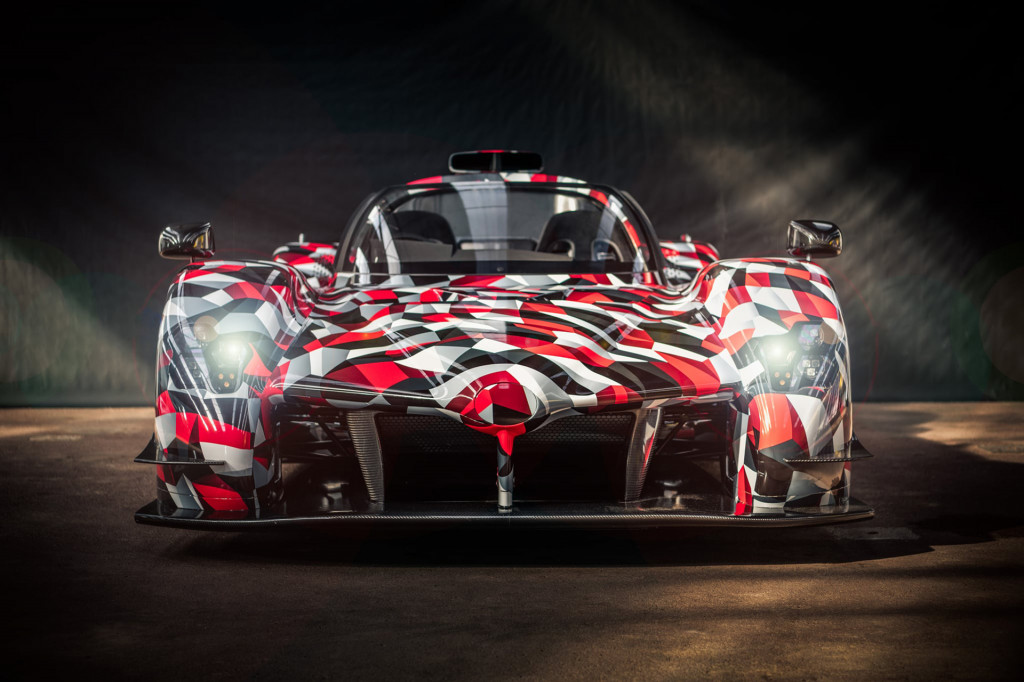Toyota wants to get to know anyone interested in buying the forthcoming GR Super Sport, the road-car counterpart to its Le Mans Hypercar (LMH) class race car. Based on a questionnaire first spotted by Motor1 on Friday, the automaker appears to be screening potential buyers before deciding whether to sell them one.
Toyota would not confirm that the questions represent a screening process. “While a sales process for the GR Super Sport has not yet been determined, we are having preliminary conversations with potential customers who might find a vehicle like this to be of interest,” Toyota spokesman Michael Kroll said in an email statement.
The long questionnaire asks what performance cars applicants currently own (there’s room for up to 10 entries) and to rank by order from most to least favorite. Toyota also wants to know how much they drive each of those cars, and what performance cars they plan to buy in the future.
The questionnaire also specifically asks whether applicants currently own a Toyota 2000GT or Lexus LFA, indicating that Toyota will weigh brand loyalty in its decisions.
Other questions ask how often applicants drive on a track, whether they have an FIA competition license, or whether they own a race team.
Shown only in camouflaged prototype form so far, the GR Super Sport is a homologation special for the new LMH class of the FIA World Endurance Championship (WEC). LMH is the new top class in the WEC, and requires manufacturers to build a minimum of 25 road cars based on their race cars by the second year of competition. That number is expected to be bumped higher for the following years. Given the small number of available cars, we can see why Toyota would screen buyers to narrow down the list of eventual owners.

Toyota GR Super Sport prototype
Toyota first showed a concept version of the GR Super Sport in 2018, using components from the TS050 Hybrid race car designed for the outgoing LMP1 class. That car included a twin-turbocharged 2.4-liter V-6 and an electric motor-generator, making a combined 986 hp.
However, LMH class rules limit the racing version to 670 hp and doesn’t require a hybrid powertrain. It’s possible the road car will have a higher output, though, as 670 hp doesn’t always cut it for a supercar these days.
While the road-car concept had an enclosed cabin, the prototype shown last year was a roadster. It’s possible the final version will have a canopy-style roof, in line with a patent application Toyota filed with the United States Patent and Trademark Office in early 2020.
Toyota will compete against ByKolles and Scuderia Cameron Glickenhaus (SCG) in the LMH class’ initial season, with other manufacturers expected to join in later seasons. Pre-season testing begins at Belgium’s Spa-Francorchamps April 26-27, followed by the season opener, also at Spa, May 1. The WEC’s marquee event, the 24 Hours of Le Mans, has been pushed back from June to August in the hope that the Coronavirus pandemic will be under control enough to allow spectators.
While Toyota isn’t the first automaker to set up an application process for a new supercar, rival SCG has said it will sell its 007 to anyone with enough cash. The company declared on Twitter Saturday that “we have no lists. We require you to buy nothing but what you want to.”
Update: This story has been updated to include the quote from Toyota.

Leave a Reply